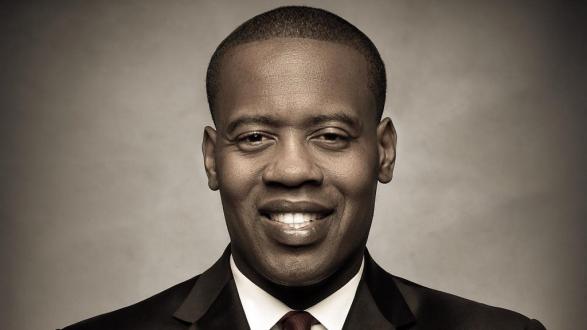In March, a Pacific Council delegation traveled to Montgomery, Alabama, with the goal of better understanding the legacy of slavery and institutionalized racism in the United States. During that visit, the delegation met with Alabama state Rep. Anthony Daniels, minority leader in the state House of Representative. Inspired by the trip, Pacific Council President and CEO Dr. Jerrold Green and Board member Ambassador Michael Lawson wrote an op-ed on why institutionalized racism is a national security threat.
Recently, the Council hosted another discussion with Rep. Anthony Daniels in conversation with Kimberly Freeman, Associate Dean and Chief Diversity Officer of USC Dornsife, about how “domestic” issues such as institutional racism, educational reform, prison reform, voter suppression issues, and the healthcare system impact the United States’ standing in the world.
Here are key takeaways from that discussion:
- “We’ve been working for credibility or quite some time,” Rep. Daniels said. “Often times, this means bringing community members to the table to be a part of discussion that impact them. Educating the public, and leaders, is incredibly important. People need to think outside of their households and recognize generational poverty—COVID-19 and current events have opened people’s eyes to preexisting problems.”
- Daniels said that it’s key to have diversity in policy discussions, and not just race, but diversity of occupations, income, gender, and more. That way, recommendations to the governor (via the Alabama United group Daniels created) can effectively advocate for actions that will actually make an impact. You need a mix of policymakers and local leaders who have actually experienced these issues.
- “Education at all levels is extremely important, especially in communities of color and impoverished communities,” he said. “We need to get resources to the unserved. With the COVID-19 pandemic, vulnerable communities continue to get left behind. There’s a digital divide [such as lack of access to broadband internet and even computers] and such gaps are growing.”
- Daniels pointed out that 90 percent of rural hospitals in Alabama are operating in the red and few have OBGYNs. “COVID-19 is making all of this worse, while shining a light on the fact that healthcare access has been bad for years,” he said. “Alabama is trying to provide incentives for more doctors to go into rural communities, along with providing telemedicine.”
- On the importance of marrying Alabama’s legacy with international policy, Daniels said, “The level of poverty in Alabama is unconscionable and can certainly be compared to that of other countries. The infrastructure is comparable to third world countries. The history of race relations is fully international. In Alabama and foreign states, there are class wars and race wars. This political climate has put us back 20 years—there is so much socioeconomic division. The only way to change Alabama is to bring people in with the right minds, and to develop and keep the talent we have.”
- He added that voting needs to be made easier in Alabama, because right now there are a lot of barriers that need to be removed and/or reformed. “When more people have access to the voting booth, it will help balance the state,” he said. “The gerrymandering based on partisanship is more extreme in Alabama than anywhere else I’ve seen in the country. About 500,000 African Americans in Alabama vote rarely and sporadically—these are the voters we need to turn out. We can use relational organizing [including churches, barbershops, etc.] and social pressure to encourage people to register and vote.”
- For resources on how to be an ally, Daniels recommended Brown is the New White by Steve Phillips and the book and movie Just Mercy by Bryan Stevenson.
Watch the full conversation below:
_______________________
The views and opinions expressed here are those of the speakers and do not necessarily reflect the official policy or position of the Pacific Council.




